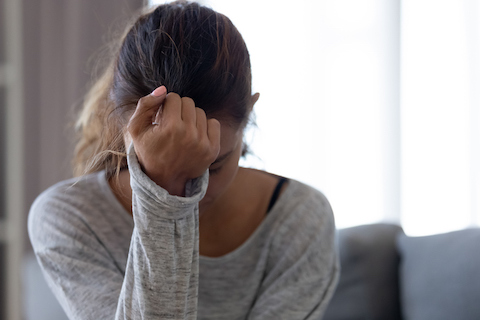The Vast Difference Between Aloneness and Loneliness
By Dr. Margaret PaulJuly 19, 2021
Have you ever been around people, yet felt both alone and lonely? Have you ever been alone, yet didn't feel lonely?
 Often, when I ask my clients what they feel, it’s obvious to me that they are confused between loneliness and aloneness.
Often, when I ask my clients what they feel, it’s obvious to me that they are confused between loneliness and aloneness.
Aloneness
Aloneness is an inner feeling of being all alone in the universe, and feeling empty inside. Aloneness indicates that there is a lack of love inside. But, contrary to what most people assume, it’s not another’s love that’s missing – it’s your love that’s missing.
The feelings of aloneness and emptiness are the result of emotional self-abandonment – of ignoring your feelings, judging yourself, using addictions to numb your feelings, and of making others responsible for you feeling loved, safe, and worthy. When you emotionally reject and abandon yourself, your feeling self – your inner child – feels alone and empty inside. When you emotionally abandon yourself, your heart closes and you can’t feel the love and comfort of your higher guidance, which leads to feeling alone in the universe. This is a very sad way to live, yet this is how many people live.
Loneliness
Loneliness is the feeling most of us have when we want to connect with someone and no one is around to connect with, or the people who are around are closed off and not available for connection. We can feel a moment of loneliness in many situations, such as if you are open and friendly with a checker in the market, but the checker is closed and grumpy. For me, loneliness is an important feeling, giving me information about whether another person is open or closed, loving or unloving. I bring compassion to the feeling, which then allows it to release. I’ve received the information, I’ve acknowledged it with love and compassion, and then it’s gone and I continue to feel peaceful and full inside.
However, when you abandon yourself because you are avoiding the feeling of loneliness, or avoiding other painful feelings such as helplessness over another person not connecting with you, you then feel both alone and lonely, which is often called despair.
Alone and Lonely
If, when you are around others, such as with a partner or at a social event, you have disconnected from yourself with your various forms of self-abandonment, you will likely feel both alone and lonely. You cannot connect with others when you are disconnected from yourself. When you emotionally abandon yourself, your inner emptiness is like a vacuum on others’ energy, pulling on them for love and approval that you are not giving to yourself.
This is why you can feel both alone and lonely even when you are around others.
When you learn how to take emotional responsibility for your own feelings – when you learn how to fill yourself with love to share with others, you will never feel alone and empty inside. You will be able to connect with others who are available for connection, and you will no longer feel rejected by others when they are not available for connection, because you are not rejecting yourself with your various forms of self-abandonment. Your feeling of loneliness when with others who are closed and unloving will be short-lived, and you will find loving ways to not feel lonely when you are alone.
Life becomes filled up with love and peace within, even when life is very challenging, when you know how to take emotional responsibility.
Join Dr. Margaret Paul for her 30-Day at-home Course: "Love Yourself: An Inner Bonding Experience to Heal Anxiety, Depression, Shame, Addictions and Relationships."
 Send this article to a friend
Send this article to a friend  Print this article
Print this article  Bookmarked 0 time(s)
Bookmarked 0 time(s)
| Related Articles |
|---|
| Loneliness versus Solitude |
| The Cause of the Aloneness that Leads to Addictive Behavior |
Comments
| Author | Comment | Date |
|---|---|---|
| Join the Inner Bonding Community to add your comment to articles and see the comments of others... | ||

Daily Inspiration
What path are you really on? Do you stay open as long as things are going your way but retreat to anger or withdrawal as soon as you are displeased with someone or something? Or, do you stay open even in the face of conflict and challenges? Today, be honest with yourself regarding which path you are truly devoted to: The Path of Fear or The Path of Love and Courage.
By Dr. Margaret Paul

 Share with Del.icio.us
Share with Del.icio.us Share with Digg
Share with Digg







